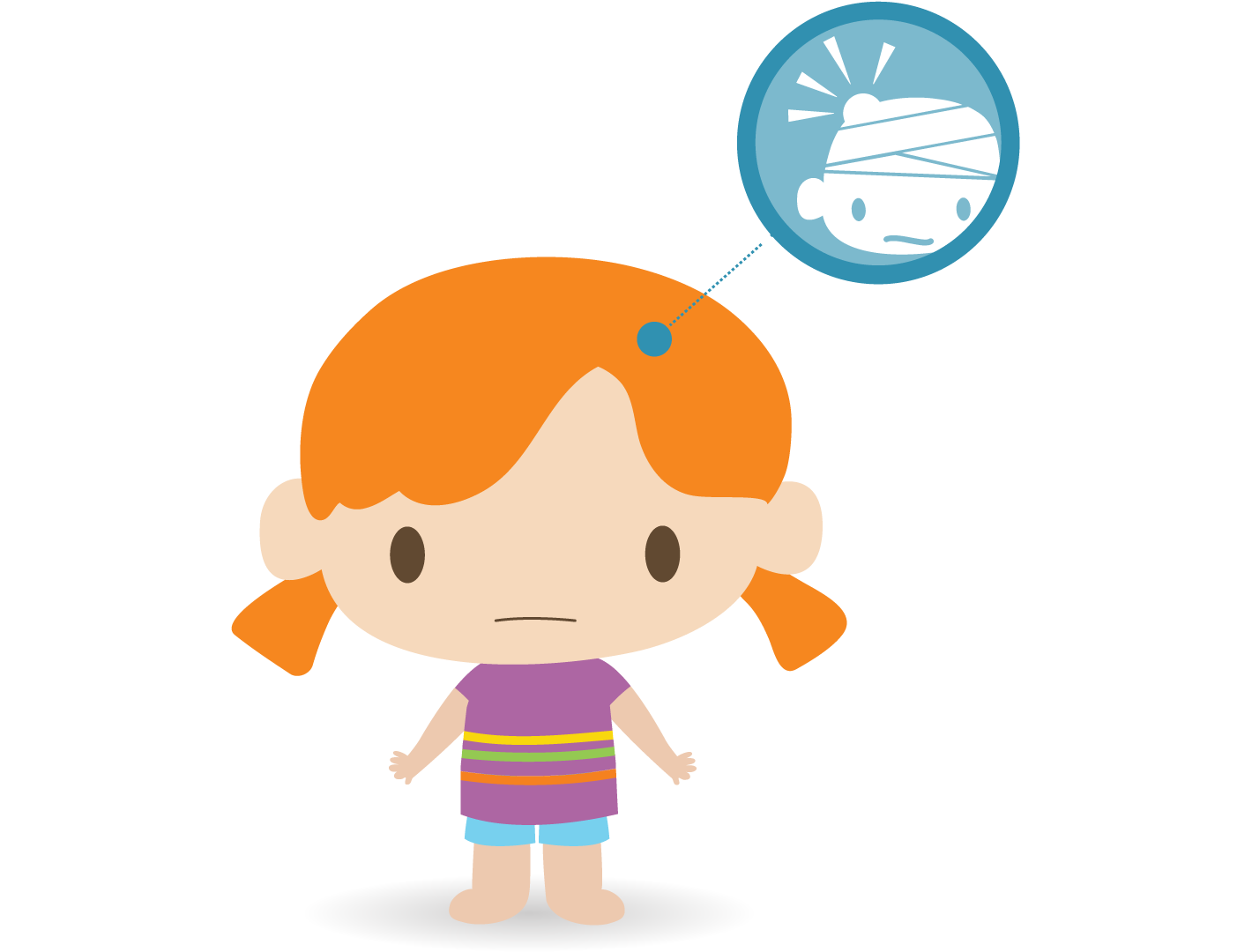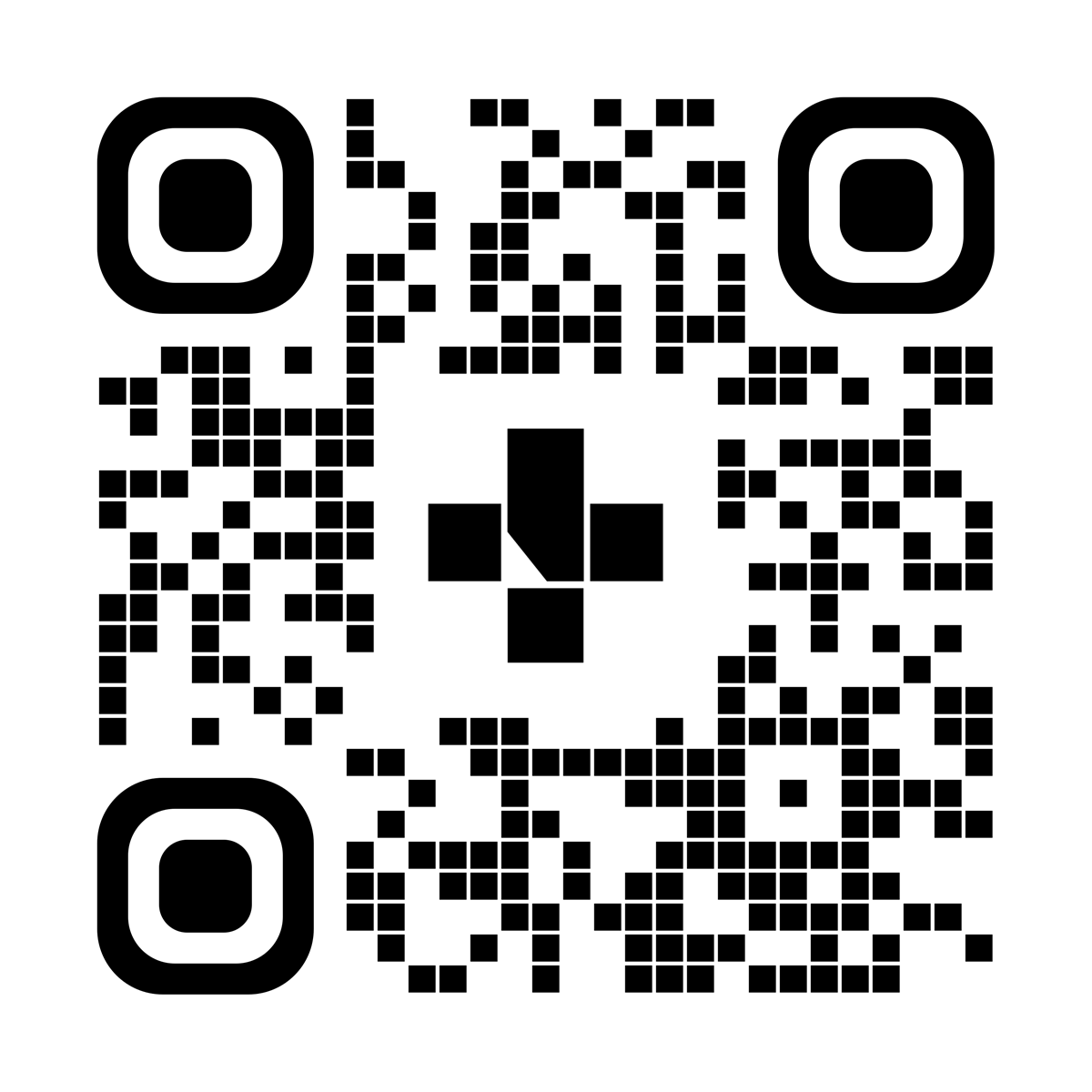Head Injury in Children
HEAL

This information has been translated into other languages – see the links at the bottom of this page.
Key Points
- Concussions are a minor traumatic brain injury following an impact on the head or upper body
- Children with concussions can have lots of different symptoms – the most common are headaches, dizziness, nausea and difficulty concentrating
- Allowing your child’s brain to rest and recuperate is the best treatment for concussions. It is recommended that your child slowly return to school and sports after a short time of quiet rest
- Most children recover from their concussion in two weeks. If your child has symptoms for more than a month, they should be referred to a specialist
- For detailed information on concussion symptoms and how to help your child return to school and activities, see these Concussion Guidelines
What Is It?
A concussion is a mild brain injury resulting from a jarring of the brain following a head injury. Head injuries can result from: a direct blow to the head, a hit to the upper body, or a rapid accelerating/decelerating force on the body. These forces cause the brain to move inside the skull. Concussion symptoms can occur even without a loss of consciousness (fainting/black out) and can last minutes or hours to days and months.
Concussions are a brain injury that will not be seen on xrays, CT scans or MRIs. They can affect the way a child may think, behave and remember things.
Symptoms
The signs (seen by others) and the symptoms (felt by the person) of a concussion can be hard to notice. Symptoms may start hours or rarely, days later. A concussion can cause one or more of the following:
Early symptoms of concussion:
- Headache
- Dizziness
- Vertigo (spinning) or imbalance
- Lack of awareness
- Loss of consciousness
- Nausea and vomiting
Late symptoms of concussion:
- Staring
- Slow to answer questions
- Inability to focus or concentrate
- Disorientation
- Confusion
- Memory loss (amnesia)
- Slurred speech
- Behavioral or mood changes
- Light or noise sensitivity
- Fatigue or sleep disturbance
- Ear-ringing
- “Seeing stars” or vision changes
- Blurred vision
- Poor balance or coordination
Very young children may show the following signs:
- Decreased interest in feeding/nursing
- Loss of learned skills (ie: toilet training)
- High pitched cry or more difficult to settle
Treatment
A concussion is a serious event but most children can recover fully if their brain is given time to rest and recuperate. Returning to regular activities like school and sport is a step-by-step process that requires patience and caution.
A ‘Return to School’ and ‘Return to Sport’ system is recommended for children with concussions.
- It is recommended your child rest for one to two days following their injury. Rest means your child's physical activity is limited to walking and light exercise that doesn't cause them to sweat. Mental activities will depend on your child's age and can include crafts, colouring, board games, puzzles, being read a story, light reading, or watching TV or using a computer for short periods of time (limit screen time).
- After the first few days of rest, your child should begin to ‘Return to School’. This means a slow return to school and homework. Your child’s teachers should know about the concussion. Your child may need some extra help with assignments, or a quieter workspace to complete their tests.
- Your child can begin the Return to Sport steps at the same time they begin the Return to School steps.
How Long do Concussions Last?
The length of time a child will experience concussion symptoms can be quite variable. Most children will recover within one to two weeks, especially if they follow brain rest and activity rest guidelines that are recommended.
Some children will experience symptoms such as chronic headaches, poor concentration and memory issues for more than two weeks. If the concussion symptoms last longer than a month, your child should be seen by their family doctor and consider a referral to a specialist in concussion management.
How Can I Prevent Concussions from Happening?
The best way to prevent concussions is to prevent high speed/high impact injuries to the head and neck. While helmets are great at avoiding damage to the skull, they do not prevent concussions. Children who have had multiple concussions are at higher risk for long term issues with headaches and learning problems.
Where Can I Get More Information?
Parachute Canada: An excellent guideline for parents and caregivers. Parachute Canada is a national organization dedicated to injury prevention and has multiple tools for families that can be found here.
When To Get Help
Call 911 anytime you think your child may need emergency care.
Seek immediate medical attention if:
- Your child has a severe, worsening headache
- Your child has a seizure
- Your child is complaining of weakness, numbness or tingling to a part of their body
- Your child has sudden worsening confusion or changes to their behaviour
- Your child is difficult to wake up or very drowsy
- Your child has lots of vomiting and looks more tired/unwell after throwing up
- Your child has sudden changes to their vision
Know your options
It can be scary when your child is sick. But in most cases, you don’t need to go to the emergency department. If you’re unsure, visit ahs.ca/options to learn about the options so you can get the care you need.
About AHS HEAL
The Alberta Health Services HEAL (Health Education and Learning) program was created by a team of doctors, nurses and other clinical staff who work at the Alberta Children’s Hospital and the Stollery Children’s Hospital, to support families and patients with up-to-date and useful information about common childhood health concerns. Learn more at ahs.ca/heal.
To see this information online and learn more, visit: ahs.ca/heal/page12430.aspx

Related to Head injury in children:
Other languages
Head injury in children: HEAL
For 24/7 nurse advice and general health information call Health Link at 811.
Current as of: March 1, 2023
Author: Pediatric Emergency Medicine, Alberta Health Services
This material is not a substitute for the advice of a qualified health professional. This material is intended for general information only and is provided on an "as is", "where is" basis. Although reasonable efforts were made to confirm the accuracy of the information, Alberta Health Services does not make any representation or warranty, express, implied or statutory, as to the accuracy, reliability, completeness, applicability or fitness for a particular purpose of such information. Alberta Health Services expressly disclaims all liability for the use of these materials, and for any claims, actions, demands or suits arising from such use.
